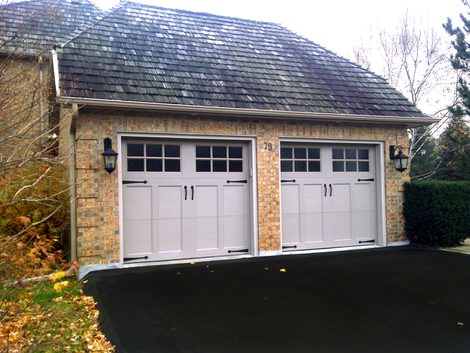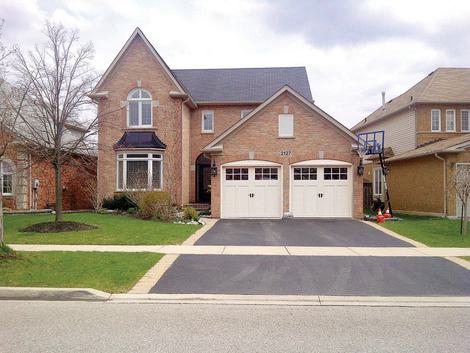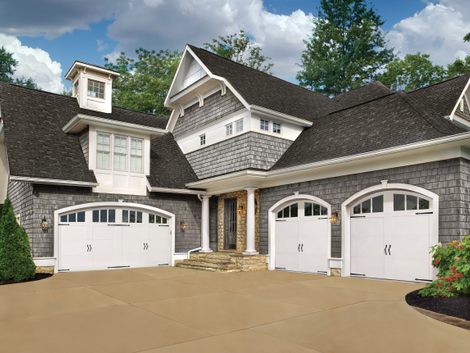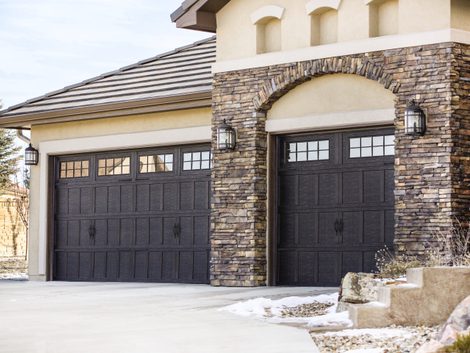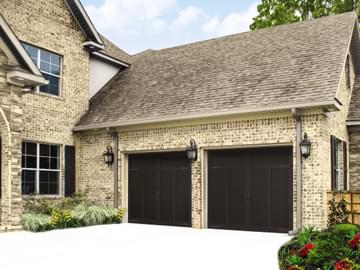
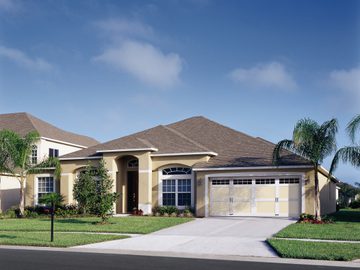
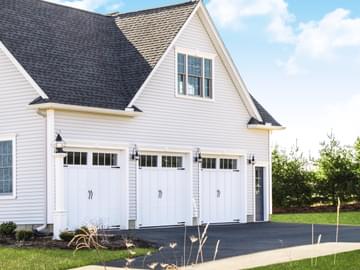
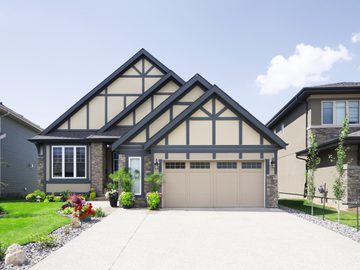
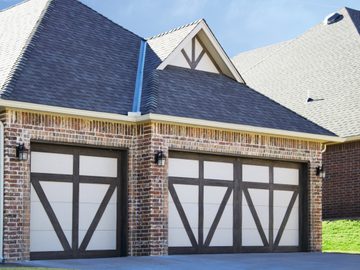
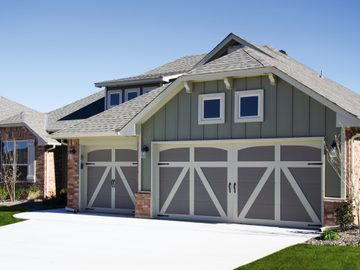
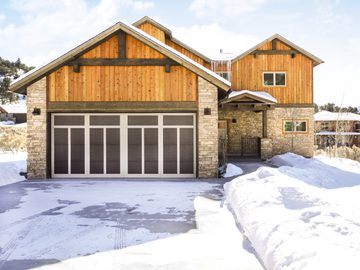
Carriage House Garage Doors Model 8600 (Formerly 6600)
Add a timeless touch to your home's exterior with Wayne Dalton's Garage Door Model 8600 (formerly 6600). Featuring beautifully crafted panels and two layers of steel, these carriage house-style garage doors are both elegant and extremely durable. Choose from sixteen different carriage house designs and a variety of window options.
Product Specs
Construction
- Made with two layers of steel and DecaTrim™ II overlays
- Polyurethane foamed-in-place insulation with an insulation R-value of 12.12
- Tongue & groove joint seals
- Heavy duty hinges
- Ball-bearing rollers with nylon wheels and solid steel shafts
Features
- High insulation value can improve the thermal efficiency of your home and block street noise
- Smooth overlay boards are treated to resist termites, weather, and fungal decay
- 14 gauge hinges add strength, stability, and smoother door operation
- Snug-fitting section joints reduce wind and weather from entering the garage
Options
- Panel options are available in either arched or square top styles
- Choice of all white or two-toned colour door
- Two Spear pull handles and one bottom lift handle are included for single car doors
- Four Spear pull handles and two bottom lift handles for double car doors
Notes
- Arched-top designs are available in solid panels only
- Not all windows are available in all door sizes
Brochure
Highlights
| Material | Steel | |||||||||||||||
|
Price Range ? $50-$500 = $ All costs are based on a standard 16' x 7' door size. Costs vary by location and are for supply only; installation is extra. Changes to door size, quantity of doors, and panel styles will affect pricing. Costs exclude hardware, windows, and color changes. | $$ | |||||||||||||||
|
R-Value ? R-value measures how well a material resists heat flow: the higher the R-value, the better the insulation. For doors, a higher R-value helps improve energy efficiency by keeping indoor temperatures more stable. R0-R6 = 1 star | 12.12 (★★★) | |||||||||||||||
|
U-Factor ? U-Factor measures how well a door keeps heat from escaping. The lower the number, the better the insulation. Unlike R-Value, which only measures material resistance, U-Factor reflects the performance of the entire door system, making it a more accurate measure of energy efficiency.
| 0.15 (★★★) |

